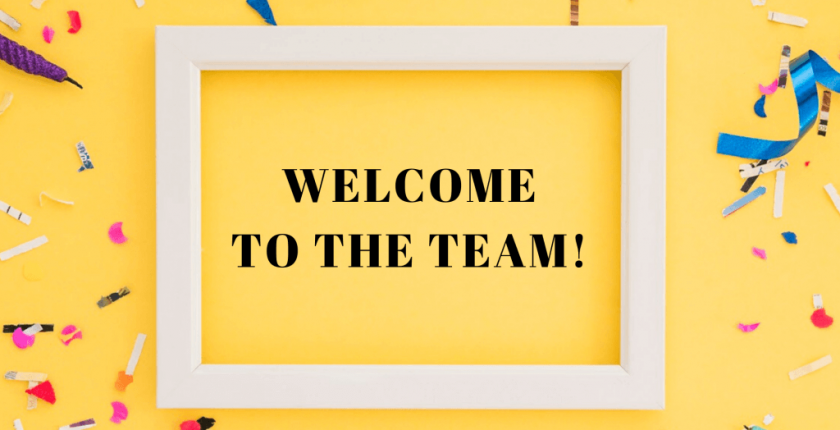Don’t forget the Onboarding
You’ve reached the final stage of your hiring process, your candidate accepts the offer, so now you can start with the onboarding. So, what is it exactly?
onboarding
NOUN
- the action or process of integrating a new employee into an organisation or familiarising a new customer or client with one’s products or services. “after the initial onboarding is complete, continue to offer new staff relevant training and development opportunities”
Onboarding is a golden opportunity to engage with new employees, ensuring they have the knowledge needed to be successful in their role and make them feel part of the organisation. Research suggests that a positive onboarding experience is associated with employee retention; a reported 86 per cent of employees decide whether they will stay with an organisation within their first six months of joining, with four per cent even deciding on day one. First impressions matter – yet many organisations do not have a clear onboarding strategy.
First, starting from the top is imperative, with support needed from the C-suite. Without this, the new employee experience risks being forgotten, and initiatives will not receive the funding or resource they need.
Secondly, organisations should understand where their onboarding falls short before embarking on a change programme. Gather feedback from your employees (both current and exiting the organisation) and visit other workplaces if you can, to understand their onboarding initiatives.
There may be an initial intensive orientation programme for all new hires, followed by a department-specific onboarding plan. Another initiative used successfully is mentorship. Providing a new employee with a mentor who knows organisational processes can help to humanise the environment. A good onboarding process should also assimilate the employee to the organisational culture.
For example:
Preparatory checklist:
- New hire paperwork
- Equipment and work environment – source and prepare ready for Day One
- Establish a mentor and training
A great way to ensure day one is a breeze is to call the employee the week before they start and make sure they know what their first day will look like, what to bring and what to expect.
New employee first day checklist:
- Basic integration
The new employee first day checklist starts with an office tour, the provision of a starter pack and the completion of compulsory paperwork. This should include a run through of the employee contract, Staff Handbook, job description, daily duties, and benefits within the remuneration package. - Introduction to company culture
Team introductions and introduction to the mentor. Also, make arrangements for lunch on Day One for the new person as this can be an awkward part of the day. - Establishing expectations and making introductions
Start booking introductory meetings with key stakeholders, helping the new hire to collaborate with members of other teams, and laying out the expectations for their role. Make sure to fill the new person’s schedule with as many 1:1 meetings with their colleagues and stakeholders as possible over the coming days. That way, they can start building relationships – and getting all their questions answered – from Day One.
Ongoing
Onboarding doesn’t finish after the first 30 days — aim to regularly check in with your new team member throughout their probationary period, to chart their progress and provide support where necessary.
Onboarding is the first impression that employees have of an organisation and ensuring that new hires have a great experience will not only decrease the time taken to ramp up but will set the scene for a good employment relationship and retention. Keep it people orientated – this will immediately establish a great human element to your Company culture, give your new person the best possible start and put relationships and trust at the heart of the employee experience.
Onboarding – make it a key part of your people strategy!
֍֍֍
Sirius can provide your organisation with a tailormade onboarding process. For further details, call (01932 562007) or email: [email protected]

